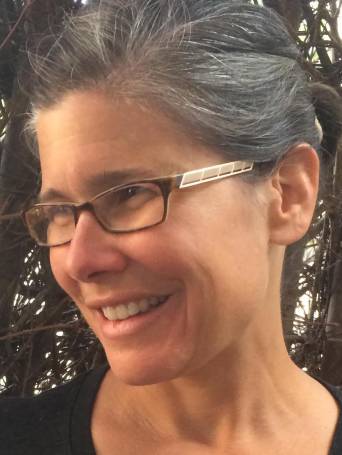
The Rev. Noelle Damico is an Adjunct Assistant Professor of Public Service at NYU’s Robert F. Wagner Graduate School of Public Service. She is also a Senior Fellow at the National Economic and Social Rights Initiative, in New York City. She has worked side by side with the Coalition of Immokalee Workers (CIW) organizing institutional and grassroots involvement in the CIW’s Campaign for Fair Food since 2001 and is a member of the board of directors of the Fair Food Standards Council that monitors the CIW's internationally recognized and award winning Fair Food Program. She is the co-author of “Now the Fear is Gone: Advancing Gender Justice through Worker-driven Social Responsibility,” which examines the transformative effect of this paradigm on ending and preventing sexual assault and harassment in the workplace.
Noelle lectures widely on human rights, forced labor, and corporate accountability at universities, institutions and conferences including keynotes at the Organization for Security and Cooperation in Europe High Level Conference on Human Trafficking, the US Department of Justice’s National Human Trafficking Conference, and the NGO Working Group on Food and Hunger Policy at the UN.
For twelve years Noelle served as national spokesperson for the two million-member Presbyterian Church (U.S.A.)'s commitment to the CIW's Campaign for Fair Food and the Fair Food Program, organizing thousands of congregations across the country to join farmworkers in successful rights advocacy and defining the denomination’s human rights based approach to human trafficking. Prior to that she directed the UCC’s legislative advocacy network on Capitol Hill, served as a pastor of congregations on Long Island and in New Jersey, a campus minister at SUNY Stony Brook, and worked in the field of software design. She started Shalom Interfaith Partnership in 1996, a non-profit that pools resources from 13 congregations of different faiths in order to meet emergency needs and address root causes of poverty with people who have been made poor in Suffolk County Long Island.
An ordained minister in the United Church of Christ, Noelle is deeply involved in efforts for justice and collective well-being in Westchester County. She is the Co-Chair of the Westchester Women’s Agenda, the co-founder of Interfaith Clergy for Social Action, on the planning team of #KeepWestchesterThriving a super-coalition of non-profits, community organizations representing environmental, human services, faith, the arts, and housing rights to ensure county financing and support for the common good, and a founding member of the Stewards of Cranberry Lake Preserve (cranberrystew.org). Several years ago she and her son led a grassroots, district-wide effort in White Plains to reform recess practices in all five elementary schools.
Noelle holds a B.A. with high honors from Swarthmore College in religion, politics and economics, an M.Div. in philosophical theology and a Th.M. in aesthetic philosophy and liturgy from Princeton Theological Seminary. She resides in White Plains, NY.